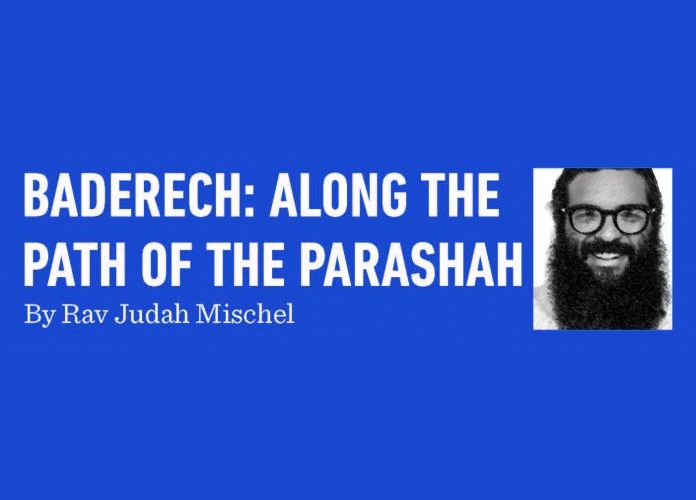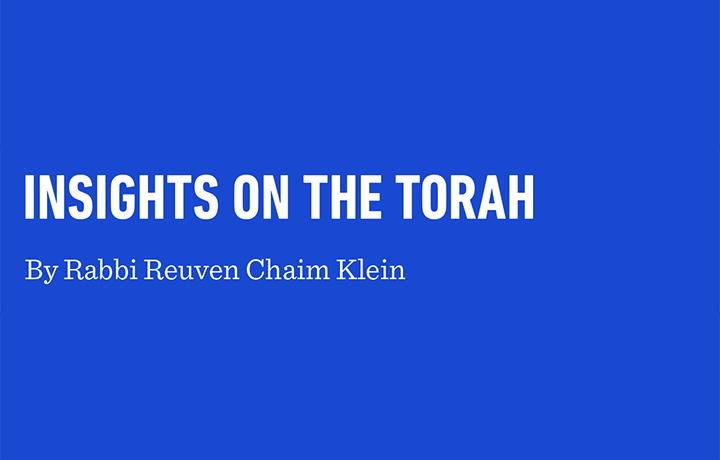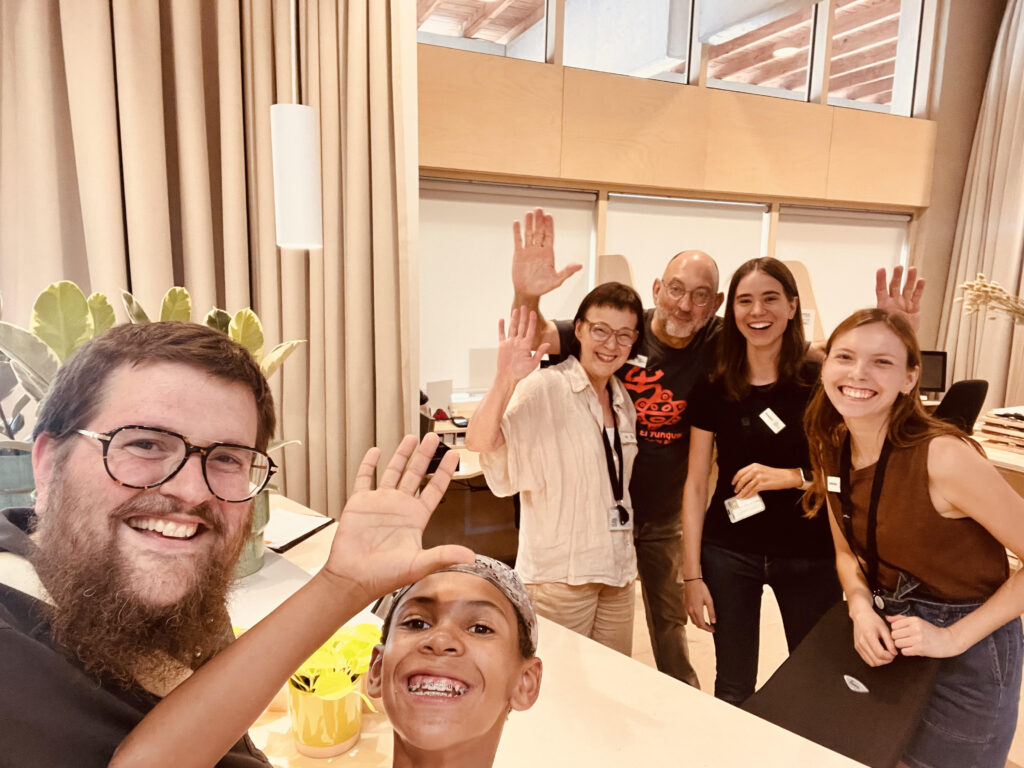Musings Of A Shliach From Montana
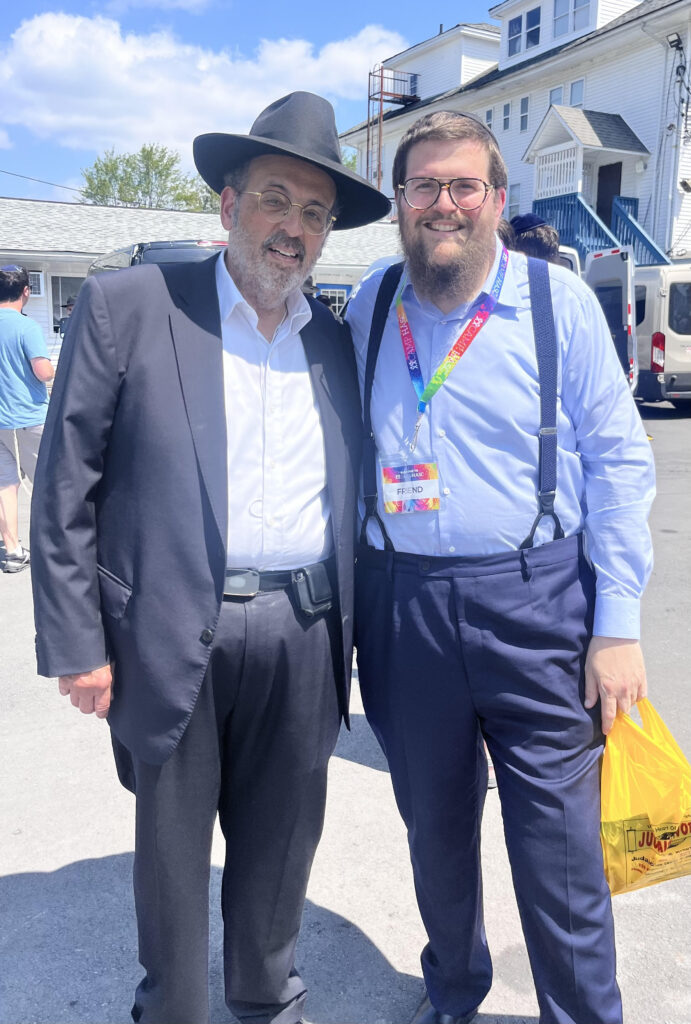
Rabbi Chaim Bruk and Reb Abe Eisner at Camp HASC this week
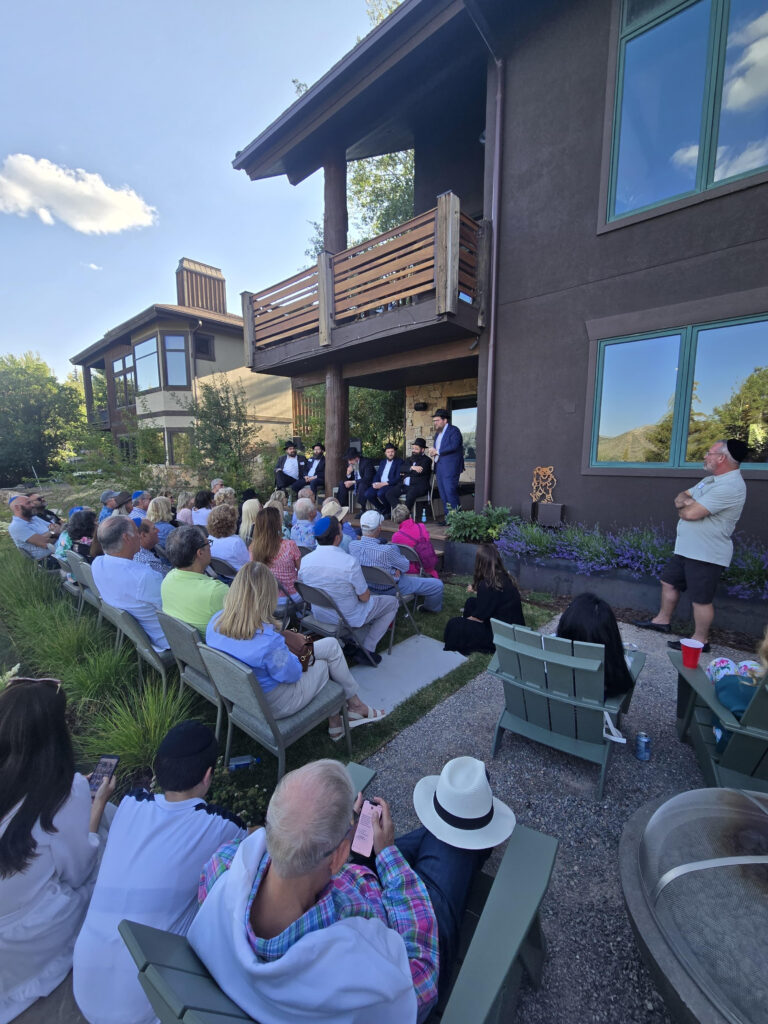
Rabbi Chaim Bruk speaking to the Jewish Community in Park City alongside his colleagues
It’s the Nine Days and almost Tisha B’Av and I’m struggling. Every year at this time I have mixed feelings that vacillate minute by minute.
I appreciate how unique it is that Klal Yisroel still mourns the destruction of the Beis HaMikdash. It’s something the rest of the world can’t even relate to, but I also believe that it’s high time for Mashiach to come since we’ve been through enough. We’ve been begging for Mashiach since Yetzias Mitzrayim, especially in the last 2,000 years, and we’re still in exile, big time.
I’ll tell you why it hurts: In addition to being a Shliach in Montana, something you all know about from this column, I also man the phones for a Chabad grassroots initiative for Shluchim called “Vaad Rofeh Yedid,” which helps families on “Shlichus” in remote areas and sometimes big cities to find a second opinion for medical issues their family members are facing in accordance with the Rebbe Zatza”l’s instructions to always get a second opinion when proceeding with a big medical decision.
Some weeks bring me seven or eight medical interventions, and some weeks have only one or two, but when hearing the stories, when speaking with the Shluchim and Shluchos and hearing about the medical issues they or their children are facing, my heart breaks.
Most people choose to suffer in silence, either because it’s too overwhelming to bring others on board or because of the shame of asking for help. I hear the stories and I ache. Hashem, how much suffering can Your people endure? When is enough, enough? I don’t like to complain but when is Klal Yisroel’s tsuris going to end?
While most days I feel like a tough guy, when it comes to human suffering, Jewish suffering, I’m a bit of a softy and I try my best to numb myself from the calls, but it’s just not always possible.
Last week I had the honor of flying to Park City, Utah to attend the birthday celebration of my friend Mark “Mordechai Eliyahu” Hoffman. Seven Chabad Rabbis who are Mark’s Chevra joined together from Utah, Montana, Wisconsin, California, and New York to enjoy a Kosher BBQ and Farbrengen. With the incredible leadership of Rabbi Yudi and Devori Steiger, a good chunk of the Park City Jewish community joined the special celebration, and it was an inspiring evening. While flying home, someone next to me on the plane shared that his daughter had just been the victim of domestic violence and she’s struggling with the best remedy how to deal with it.
I heard him out and my heart was in pain.
Ingesting the individual cases and then adding to that the collective pain of Klal Yisroel in Israel and abroad, like most of you, I just can’t wrap my head around the horror we’ve been experiencing as of late. Yet, in the face of so much pain, we are obligated to remain believers, optimistic in our outlook, and sing with every fiber of our being: We Want Mashiach Now. We are meant not just to say it in Shemoneh Esrei, not just to proclaim in the Thirteen Ani Maamin principles of faith, not just say it in Bentching, but to mean it at our core. When we say “Mekimi meafar Dal me’eshpot yarim evyon” or “U’vnei Yerushalayim,” we scream from our depths of our souls. We can’t surrender to the Galus and give up on Mashiach. The Nine Days remind us that we are in mourning and we’ve lost a lot, but they also remind us that Mashiach is coming and he was born on Tisha B’Av, so redemption is not only possible, it’s guaranteed.
These days are a reminder that suffering is real, but so is redemption and a bright future. If it sounds like I’m convincing myself, it’s true, I am convincing myself, because Hashem demands that we believe that better days are coming and it will be awesome.
While there is a feeling of sadness during these days, overdosing on sadness is a mistake. The Gemarasays in Taanis: “When Av arrives, we minimize in simcha.” But the Torah doesn’t suffice with a general statement, and goes on to teach us how to minimize simcha by refraining from music, not showering, not overindulging in pleasures, and so on. Yet when it talks about the month of Adar, when we are to “add in simcha,” why doesn’t it tell us how to add that joy?
It’s explained in seforim that our sages were emphasizing something powerful for all of us: We need to keep our adherence to “sadness” only regarding the specific activities mentioned by our Chachamim. General depression and sadness for the Nine Days is not okay. We are sad about the Churban, but not despondent and hopeless as it relates to the future and Mashiach, especially since serving Hashem with joy is a constant obligation, including during the Nine-Days. In the words of the Chozeh of Lublin “When Av arrives, we are “Memaatin,” minimizing, the forces of evil, and we do it with simcha.”
I am writing this to myself and allowing you to listen because it’s so easy to read the news, follow social media, and hear the gossip and feel pretty unhappy with the trajectory of humanity, but we mustn’t fall into that trap.
While picking up my son from Camp Gan Israel this week in Parksville, I had the zechus to stop by Camp HASC and visit with my dear friend, Reb Abe Eisner, and visit a child of one of my closest friends who is a camper in this amazing place. One the one hand you can look around camp and see how much families of Klal Yisroel have year-round, lifelong, struggles with their children and the pressure that is on them to show up daily for their kinderlach, but one is also inspired with the eternal hope of knowing that Klal Yisroel has each other’s back in the most amazing ways, in ways that no one on earth does for each other, and that is because we are an Am Kadosh, full of holiness and happiness.
If you join me, we can go a little deeper into the world of Kabbalah, which really helps bring it all together.
The Midrash says that “Hashem wanted to create the world with the attribute of din, which means severity or gevurah, but he saw that with too much toughness, no one would survive so he added rachamim, mercy and kindness into the mix to balance it out.”
The Bnei Yissaschar explains that chessed in Hebrew has the numerical value of seventy-two, which represents the seventy-two days from the 17th of Tammuz until Rosh Hashana, which is the Day of Judgment, Yom HaDin. So, in a sense, these ten weeks leading up to Rosh Hashana are infused with Hashem’s kindness so we don’t show up on Rosh Hashana with only “law and order.” We also need this time softened with Hashem’s kindness and mercy.
In these days before Tisha B’Av, it really hits me at my core: Hashem isn’t punishing us, he’s elevating us to a higher status, but we need to listen to His message, change our ways for the better, and start really believing. When everything around us seems wacko and devastating, it is our mandate from Hashem to be the beacon of light and hope and recognize that He always has a plan and it ends well. It takes work, true Avodas Hashem to internalize this belief, but it’s a necessity. The Imrei Emes of Ger was once asked if he had prayed as they wanted to serve him breakfast, and he answered “Gedavent? Gezugt!” (Did I pray? I said words.)
Too often we say words but don’t live by those standards, we don’t really believe that Mashiach is coming and don’t live life as if it’s an imminent reality. We should.
In Eichah Raba, we are told that when the enemies of the Klal Yisroel entered the Beis HaMikdash to destroy it, they saw the Keruvim (cherubs) embracing each other, which was a sign of Hashem’s love for the Jewish people when they were behaving properly. How could it be? If we deserved the Churban, how could Hashem be happy with us? The Rebbe explained that the destruction wasn’t punitive or anger-based; it was the greatest love that Hashem could express to us by destroying the building and not eradicating the people (as explained in the Midrash), forcing Jewry to grow in Galus and become worthy of the third Beis HaMikdash, may it be built speedily in our times, Amen. Destruction is the Biblical prohibition of “Bal Tashchit,” yet Hashem, who follows His own rules, destroyed the Beis HaMikdash because He knows the Halacha that when destroying with the intent to rebuild, it is not considered destruction at all, and that was His intent all along, a third and final Holy Temple that we will rebuild.
So, in conclusion, don’t get overly sad, don’t forget it’s about Mashiach and redemption, and don’t think Hashem is out to get you, He just wants us knocked into shape. n
Rabbi Chaim Bruk is co-CEO of Chabad Lubavitch of Montana and spiritual leader of The Shul of Bozeman. For comments or to partner in our holy work, e-mail [email protected] or visit JewishMontana.com/Donate.







